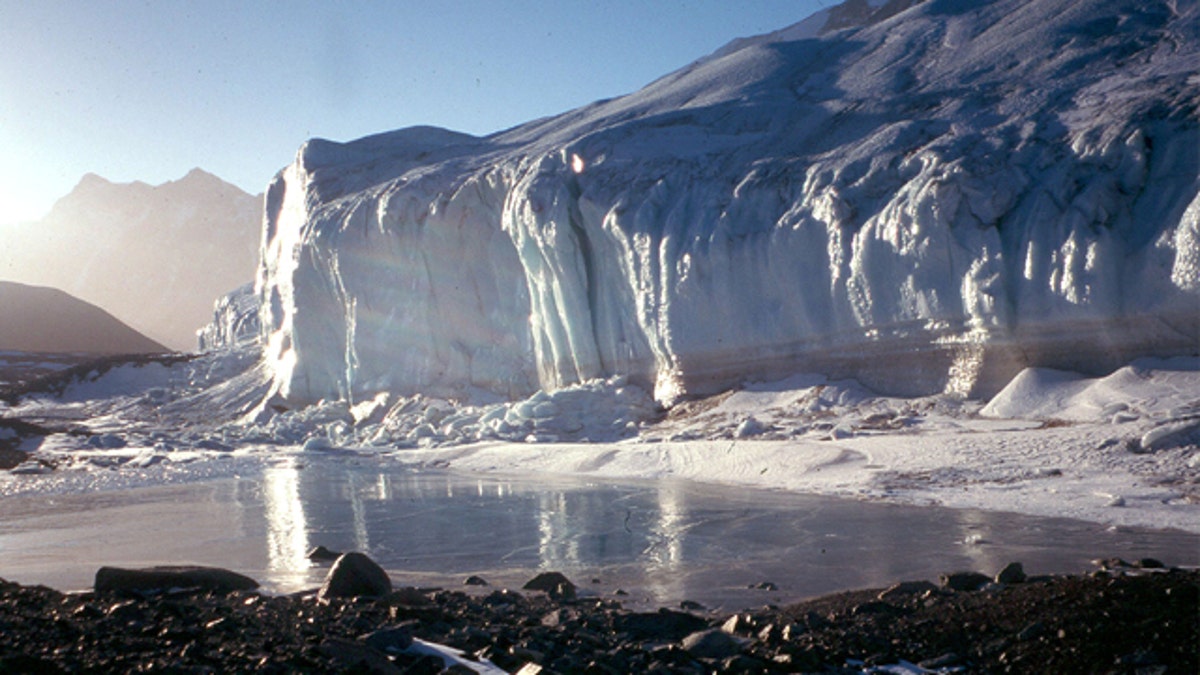
Sunlight plays off the Canada Glacier in the Wrigth Valley, one of the McMurdo Dry Valleys. (Peter Doran/National Science Foundation)
A group of Russian scientists in Antarctica has succeeded in drilling to a lake buried two miles beneath the icy landmass, the state-run Russian news service Ria Novosti reported -- following a week of radio silence from the team that had some scratching their heads.
“Yesterday, our scientists stopped drilling at the depth of 3,768 meters and reached the surface of the sub-glacial lake,” the source reportedly said in a story posted Monday, Feb. 6.
An unnamed source with Russia's Federal Service for Hydrometeorology confirmed the news as well, Russian business newspaper The View reported.
John Priscu, a microbiologist with Montana State University who has worked on a similar Antarctic exploration program, hopes Vostok and other subglacial lakes buried beneath the continent may offer a glimpse of extreme new forms of life.
"If they were successful, their efforts will transform the way we do science in Antarctica and provide us with an entirely new view of what exists under the vast Antarctic ice sheet," he told FoxNews.com.
The team from Russia's Arctic and Antarctic Research Institute (AARI) had been drilling for weeks in an effort to reach isolated Lake Vostok, a vast, dark body of water hidden 13,000 ft. below the ice sheet's surface. The lake hasn't been exposed to air in more than 20 million years.
Russia has not yet officially confirmed the breakthrough.
Beyond the fantastic science, Ria Novosti noted a number of rumors about the lake, including one that talks of a secret Nazi sub base, and the bodies of Hitler and his mistress being delivered there for cloning -- fantastic stories that again are surfacing in the Russian press.
A brief break in communication with colleagues in the unfrozen world had some asking questions about the scientists, as Antarctica’s killing winter draws near. But despite the lack of info and onset of winter, which brings temperatures as low as -80 F or colder, the team was never in danger, Priscu said.
"They are very capable scientists and drillers and the thought never entered my mind that they are in any kind of danger," he told FoxNews.com.
The buried lake may be similar to the conditions on Mars and Jupiter’s moon Europa, Ria Novosti said.
The Lake Vostok project has been years in the making, with initial drilling at the massive lake -- 6,060 square miles (15,690 square kilometers) -- starting in 1998. The scientists were quickly able to reach 11,800 feet (3,600 meters), but had to stop due to concerns of possible contamination of the never-before-touched lake water.
The scientists came up with a clever way to make sure the water would not be contaminated: They agreed to drill until a sensor warned them of free water. At that point they took out the kerosene and adjusted the pressure so that none of the liquids would fall into the lake, but rather lake water would rise through the hole due to pressure from below.
The Russians are not alone in such a mission: Scientists from around the world are literally racing to explore the mysteries of Antarctica. There are two other Antarctic digs underway.
A team from the British Antarctic Survey is on a competing mission, set to plumb the depths of Lake Ellsworth, one of a string of more than 370 lakes beneath Antarctica that may soon see light for the first time. And a third Antarctic expedition -- a study of the subglacial Whillans Ice Stream -- mainly features U.S. scientists.
